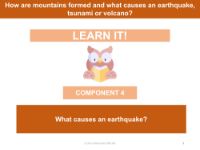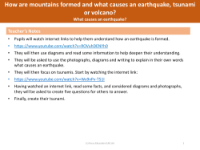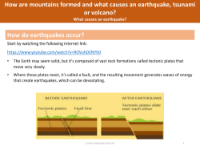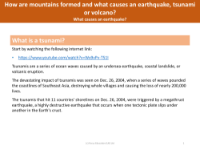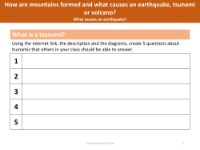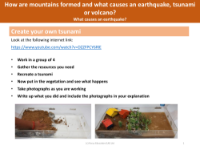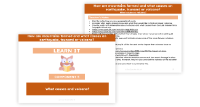Earthquakes - Report prompts
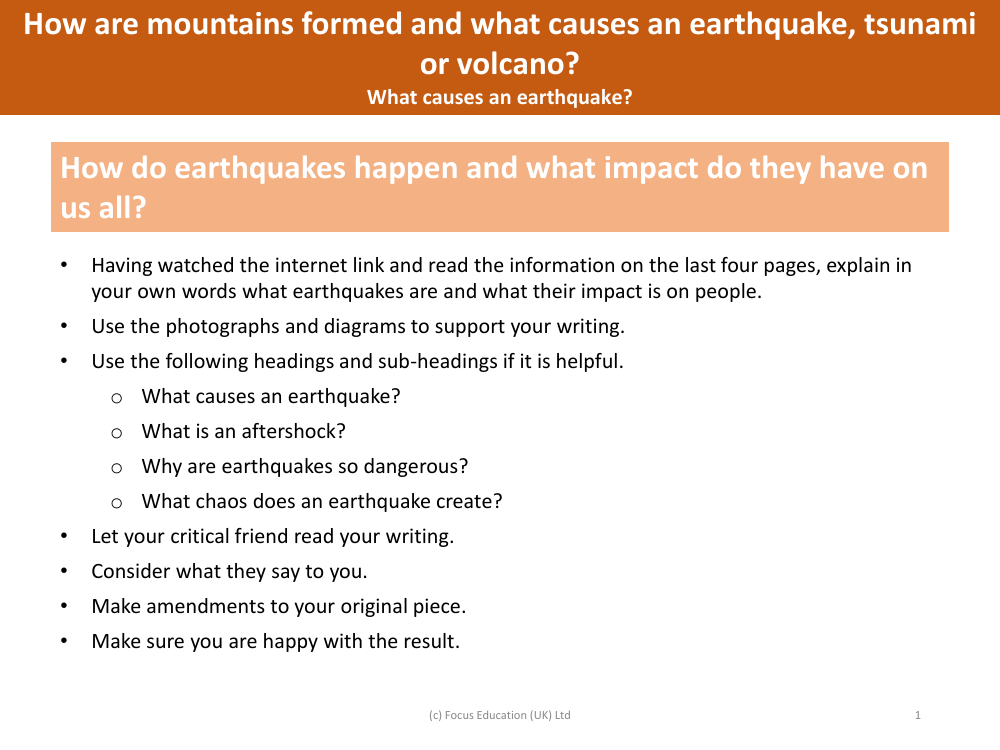
Geography Resource Description
Earthquakes are a natural phenomenon caused by the sudden release of energy in the Earth's crust that creates seismic waves. This energy release is usually the result of the Earth's tectonic plates moving and grinding against each other. When the stress on the edge of a plate overcomes the friction holding it in place, it snaps or shifts, causing an earthquake. The point on the Earth's surface directly above the earthquake's origin is called the epicentre, and the most intense shaking is often felt here.
The impact of an earthquake on people and the environment can be profound and multifaceted. Buildings and infrastructure can suffer significant damage or collapse, leading to potential injury or loss of life. Earthquakes can also trigger landslides, disrupt utilities and services, and in coastal areas, they may lead to tsunamis, which compound the destruction. In terms of human impact, earthquakes can displace communities, create economic turmoil, and result in long-term challenges for the affected regions. Aftershocks, which are smaller quakes following the initial event, can further damage structures weakened by the first quake and impede rescue efforts. The danger of earthquakes lies not only in the shaking itself but also in the secondary hazards and the chaos they create, such as fires from ruptured gas lines or flooding from broken dams and levees.
